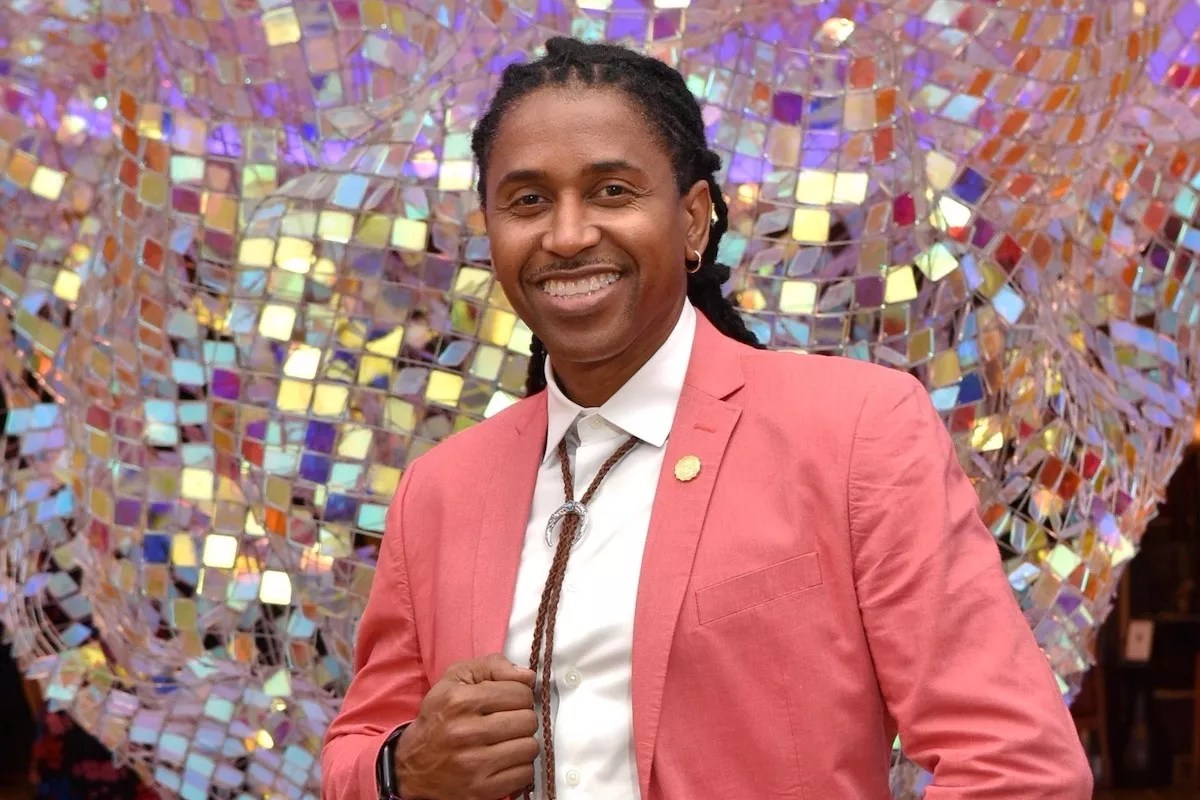
DJ Nickymix photo

Audio By Carbonatix
It’s a Sunday afternoon in May, and the sun is hot but not too hot to keep people from dancing in the Little Haiti Cultural Center’s courtyard. The Little Haiti Book Festival is taking place, and vendors sell juices under tents while rows and rows of independent authors in the marketplace hawk printed and bound words. Outside, it is up to one man to keep the party vibes going.
Dressed in white with long dreads, DJ Nickymix stands behind the turntable mixing beats as he urges the crowd in Kreyol to alternately “Put your hands together!” or “Dance if you’re from Haiti!” People don’t hesitate to ask for selfies or bump fists throughout his set. Even after he’s done and the many members of Paploko play Caribbean tunes, the wellwishers don’t stop. They all want to greet him even as Nickymix sits down to eat the food he brought from home in a Tupperware container.
Later, he’s walking around, looking for a place to sit shielded from the sun. Finally, he finds a seat in a back room, away from the crowds still looking to talk to him.
“My real name is Nixon St-Hubert – it’s like having your last name be McDonald’s in America,” he says. St-Hubert is a popular restaurant chain in Haiti, but his name wasn’t his biggest challenge as a child on the island. It was his love for music. “I loved the radio. I loved to hear what the DJs were doing. In a Christian family, it was hard for me. I had to hide listening to the radio.”
As an aspiring DJ, St-Hubert remembers hiding that he was tinkering with the family turntable from his father.
“I broke his needle one time,” he remembers. “I had to find three dollars to replace it before he got home. That was a lot of money for me, but I did it.”
After that harrowing experience, he began to borrow gear from friends and play at clubs around Haiti on the down low. In 1996, after he built up cred as a club DJ, he mustered the courage to go to a local radio station. “I got my own traffic jam show from 4 to 6. I was popular mixing my own music during drive time,” he says. “I was the first DJ in Haiti to promote remixing songs. I’d play pop, Latin, Fatboy Slim, freestyle music like Stevie B.” He also branched out to television, interviewing artists on the local broadcast.
But while he saw a lot of success in Haiti, his family still encouraged him to immigrate to the U.S.
“Every family in Haiti has a member who traveled to America. My mom left the country; then she wanted to pull the children,” he explains. “I didn’t want to come. I was comfortable in Haiti doing radio and TV.”
Eventually, he relented and moved to Boston. However, after four months, he decided to go back to Haiti. “I didn’t like the cold, so I went back to Haiti.” But before his green card ran out, he decided to check out Florida, where his then-girlfriend – and now-wife – Elizabeth Guerin lived. “I loved it so much, I had them ship my things from Boston,” he adds.
Luckily, Guerin had a job as a journalist at the Kreyòl-language station Radio Carnivale, so he had a way to South Florida’s Haitian diaspora from the get-go. “She had a show every 2 to 3 in the afternoon. On Fridays, I covered her. It started getting easy to get gigs,” he says. These days, he works as a program director for Island TV, but from Thursdays through Sundays, he’s DJ Nickymix.
He still keeps his ears close to what’s going on sonically back in Haiti. “Haiti feeds us. Whatever is happening there feeds the diaspora,” he says. The big craze in Haiti right now is rabòday, which St-Hubert describes as “Afrobeat with fast BPM, and then we put our ingredients in to make it Haitian style.”
He also enjoys playing compas, which he says is “music between couples. It’s music you dance with a girl you love, not a girl you’re trying to leave. You two get in the same space, and only one part of your body moves,” he says as he gets up to gyrate. “When we love someone in Haiti, we get tight.”
And, as if on cue, an older gentleman comes up to greet the standing St-Hubert. Sunday might quickly end, but it’s still the weekend, and Nickymix is still on duty.